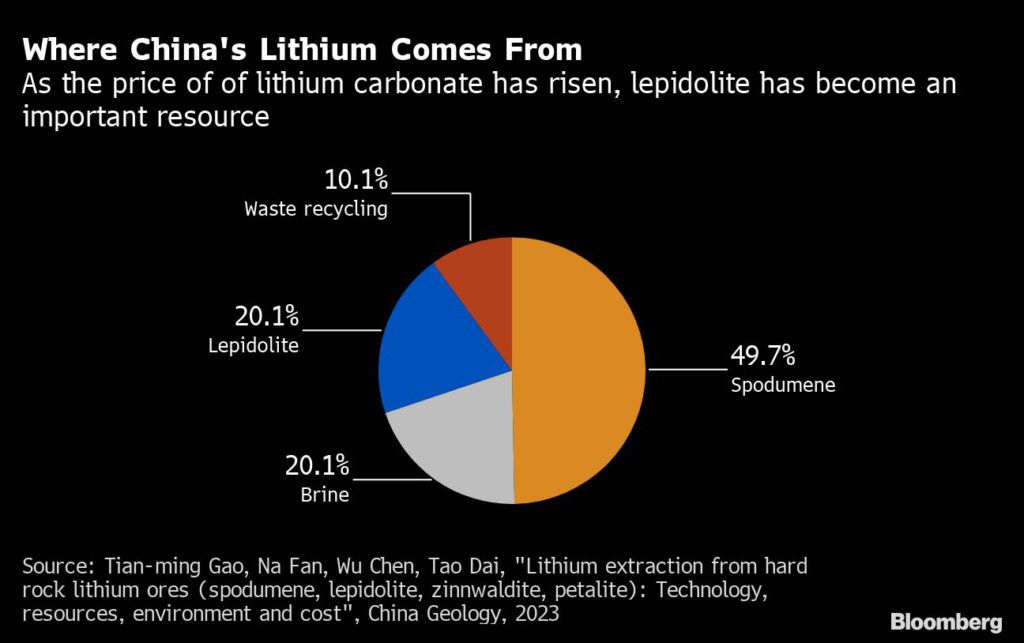China lithium miners restart after government investigation

Some mines in one of China’s major lithium-production hubs have been allowed to restart amid a government investigation that halted activity last week, according to a report in local media outlet Cailian.
A probe into the mining industry in Yichun in the southeastern Jiangxi province forced sweeping closures last week, affecting around a 10th of the battery material’s global output. All mines with valid government permits have already resumed production, Cailian reported Tuesday, citing unnamed sources at mining companies.

Yichun has been at the center of a lithium boom in the past two years, as soaring prices turned its low-grade ore — known as lepidolite — into a key source of additional supply. Major companies in China’s battery supply-chain have invested in the area, while growth in the country’s lithium output from lepidolite has been central to some bearish forecasts for the metal.
“The impact of the latest shutdowns in Jiangxi is overblown,” said Cameron Perks, an analyst at Benchmark Mineral Intelligence. The crackdown is targeting small-scale, illegal mining, and the bigger operations with licenses stopped work for just a few days, he said.
Contemporary Amperex Technology Co. didn’t immediately respond to a call seeking comment, while Gotion High-Tech Co. didn’t reply to an email. Both firms are battery-makers with investments in Yichun. Several other mining companies in the area declined to comment when reached by phone.
Mining in Yichun was largely brought to a halt last week as officials from several ministries arrived from Beijing to investigate the sector following reports of unlicensed mining and environmental infringements, Yicai newspaper reported on Sunday.
About a fifth of China’s lithium output was derived from lepidolite in 2021, according to an academic study published by the journal China Geology. Yichun’s lepidolite rocks contain less than 1% lithium, according to the study. That’s a low level that typically makes extraction more energy-intensive and expensive.
“I believe the Chinese government certainly has an interest in keeping things running smoothly, and I’m not sure that artisanal operators help there,” Perks said. “Large companies will continue to develop their projects in the region.”
More News
Contract worker dies at Rio Tinto mine in Guinea
Last August, a contract worker died in an incident at the same mine.
February 15, 2026 | 09:20 am
{{ commodity.name }}
{{ post.title }}
{{ post.date }}




Comments